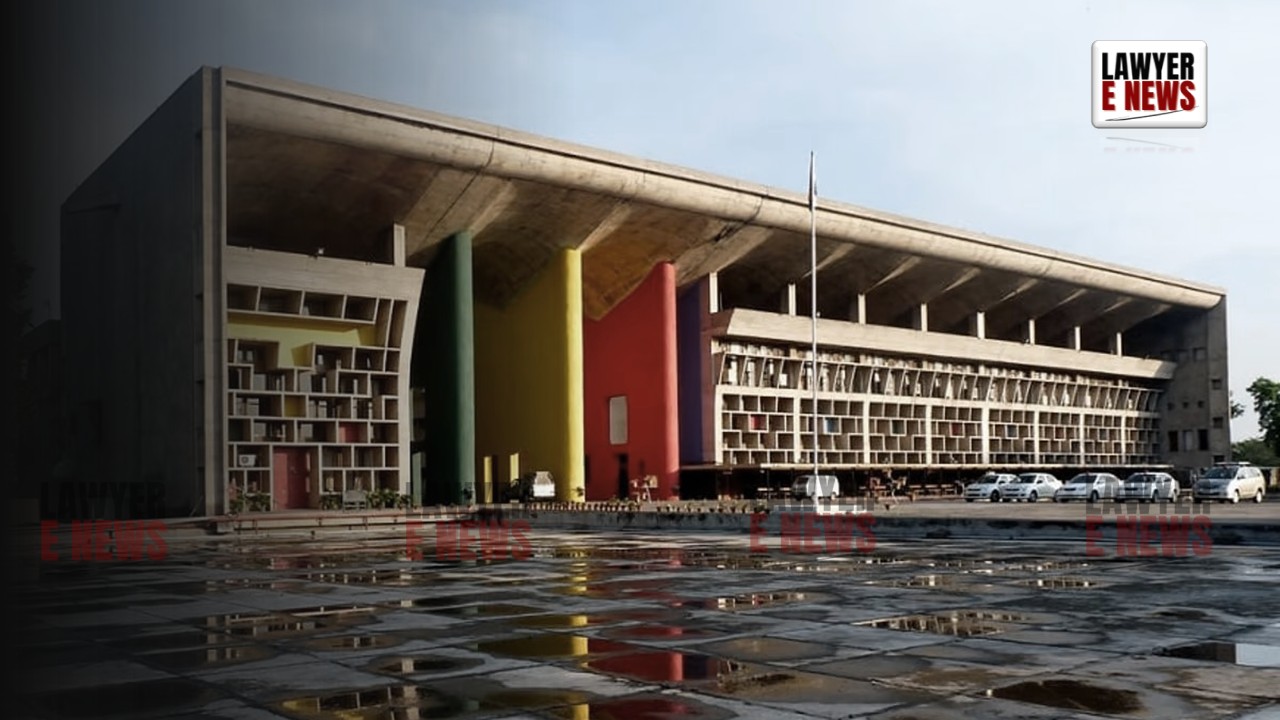-
by Admin
15 February 2026 5:35 AM



Punjab and Haryana High Court quashed the FIR, charge-sheet, additional charges, and all consequential proceedings under the Copyright Act, 1957, and Trade Marks Act, 1999. The Court found that allegations of manufacturing and selling garments under a fake label did not attract copyright protection, and mandatory procedural safeguards under the Trade Marks Act were not followed during the investigation.
The FIR, dated July 20, 2017, was registered at Police Station Jodhewal, District Ludhiana, under Sections 63 and 65 of the Copyright Act, 1957, based on a complaint by an authorized representative of Puma. It was alleged that the petitioner, Arun Kumar, was manufacturing and selling garments such as pajamas and caperies under a counterfeit "Puma" label. Following the registration of the FIR, the police conducted a search and seizure operation under the supervision of Inspector Vijay Kumar. Garments bearing alleged fake labels were confiscated, and a charge-sheet was filed under Sections 63 and 65 of the Copyright Act.
Subsequently, the prosecution sought to add charges under Sections 103 and 104 of the Trade Marks Act, 1999, through an application filed under Section 216 of the CrPC. The trial court allowed the application and framed additional charges on September 2, 2023. The petitioner challenged the FIR and subsequent proceedings under Section 482 of the CrPC, contending that the alleged acts did not fall under the Copyright Act and that mandatory procedural safeguards under the Trade Marks Act were violated, rendering the entire prosecution illegal.
The High Court began by examining whether the Copyright Act, 1957, was applicable to the alleged offense of manufacturing and selling garments bearing a counterfeit label. Analyzing Section 13 of the Copyright Act, the Court held that the Act protects literary, dramatic, musical, and artistic works, cinematograph films, and sound recordings. Copyright protection does not extend to physical goods or products like garments, even if they bear a counterfeit label. The Court concluded that there was no legal basis for the prosecution under Sections 63 and 65 of the Copyright Act.
The Court referred to its earlier judgment in Deepak v. State of Haryana (CRM-M-39653-2021), where it was held that copyright infringement pertains only to the reproduction of copyrighted works and not to the unauthorized use of a trademark or label on goods. The Court reiterated that such cases are governed exclusively by the Trade Marks Act, 1999.
Turning to the procedural safeguards under the Trade Marks Act, the Court noted significant violations of Section 115(4), which governs search and seizure operations in cases of trademark infringement. The investigation in this case was conducted by Inspector Vijay Kumar, whereas Section 115(4) explicitly mandates that investigations must be conducted by an officer not below the rank of Deputy Superintendent of Police (DSP). Furthermore, the investigating officer failed to obtain the Registrar’s opinion on the facts of the case, as required by the proviso to Section 115(4).
The Court emphasized that these safeguards are not mere technicalities but substantive requirements designed to prevent arbitrary action and ensure fairness. It noted that non-compliance with these provisions renders the entire prosecution unsustainable. In this regard, the Court relied on its judgment in Ashok Kumar v. State of Punjab (CRM-M-12823-2021), where similar procedural violations under Section 115(4) of the Trade Marks Act led to the quashing of proceedings.
The Court also examined the additional charges framed under Sections 103 and 104 of the Trade Marks Act. It held that since the initial investigation was procedurally flawed and conducted in violation of mandatory provisions, the additional charges were also unsustainable. The Court criticized the trial court for failing to consider the procedural lapses while allowing the application under Section 216 of the CrPC.
The High Court quashed the FIR, the charge-sheet, and the additional charges framed under the Trade Marks Act, as well as all consequential proceedings. The Court held that the prosecution was legally untenable due to the misapplication of the Copyright Act and procedural violations under the Trade Marks Act. It reaffirmed that statutory safeguards under Section 115(4) of the Trade Marks Act are not optional but mandatory, and any violation thereof invalidates the proceedings.
This judgment underscores that the Copyright Act, 1957, does not extend to cases involving the manufacture and sale of goods bearing counterfeit trademarks. Such cases are governed exclusively by the Trade Marks Act, 1999, which prescribes specific procedural safeguards to ensure fair investigation and prevent misuse of law.
The Court’s decision highlights the judiciary’s critical role in ensuring compliance with statutory safeguards, particularly in commercial disputes involving intellectual property. The judgment serves as a reminder that procedural lapses cannot be overlooked, as they compromise the fairness of the judicial process and undermine the rule of law.
Date of Decision: November 25, 2024
